Florida Supreme Court justices hear arguments over fate of abortion rights in Florida
- Oops!Something went wrong.Please try again later.
TALLAHASSEE – A case shaping the future of abortion in Florida played out Friday before the state Supreme Court, with attorneys for the state and Planned Parenthood affiliates dueling over the meaning of a voter-approved privacy clause in the state constitution.
Attorneys for the government led by Gov. Ron DeSantis contend Florida’s highest court got it wrong 34 years ago when it ruled that women had a right to seek abortions without government interference under the state’s constitutional privacy right.
Justices on the current, seven-member court, with five members appointed by DeSantis, are being asked to reverse their predecessors, who unanimously concluded that abortion rights were shielded by the privacy provision approved by 61% of Florida voters in 1980.
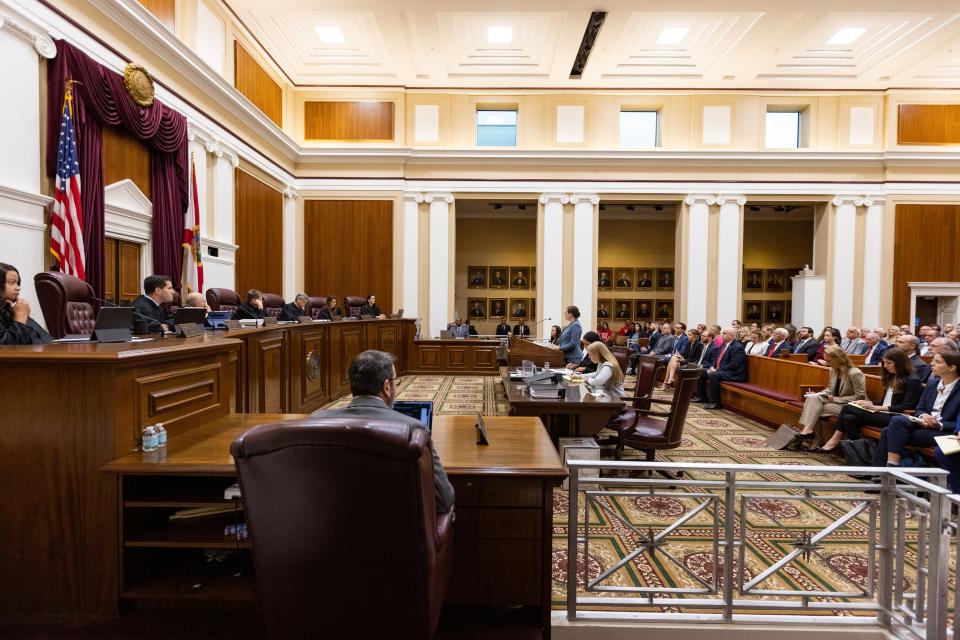
But Henry Whitaker, the state’s solicitor general, argued that voters were not thinking about abortion rights when they amended the constitution. Instead, he said, it was about safeguarding personal information in the developing computer age.
“It was explained and sold to the people solely on informational privacy,” Whitaker told justices.
What's at stake before Supreme Court: Abortion access on the line in Florida before DeSantis-heavy Supreme Court
How privacy got into state constitution: Florida has a unique right protecting abortion. Its framers designed it that way.
But Whitney White, attorney with the American Civil Liberties Union, representing Planned Parenthood, argued that while personal information is protected with the amendment, nothing prohibits it from also shielding abortion access.
Florida justices in 1989 clearly endorsed that view, she said.
“There’s plenty of evidence that’s consistent with the original meaning and understanding of privacy extending to abortion rights,” White said.
Planned Parenthood and others are challenging as unconstitutional Florida’s law banning most abortions after 15 weeks of pregnancy. Leon County Judge John Cooper last year struck down the law citing the 1989 privacy ruling by the more liberal-leaning state Supreme Court.
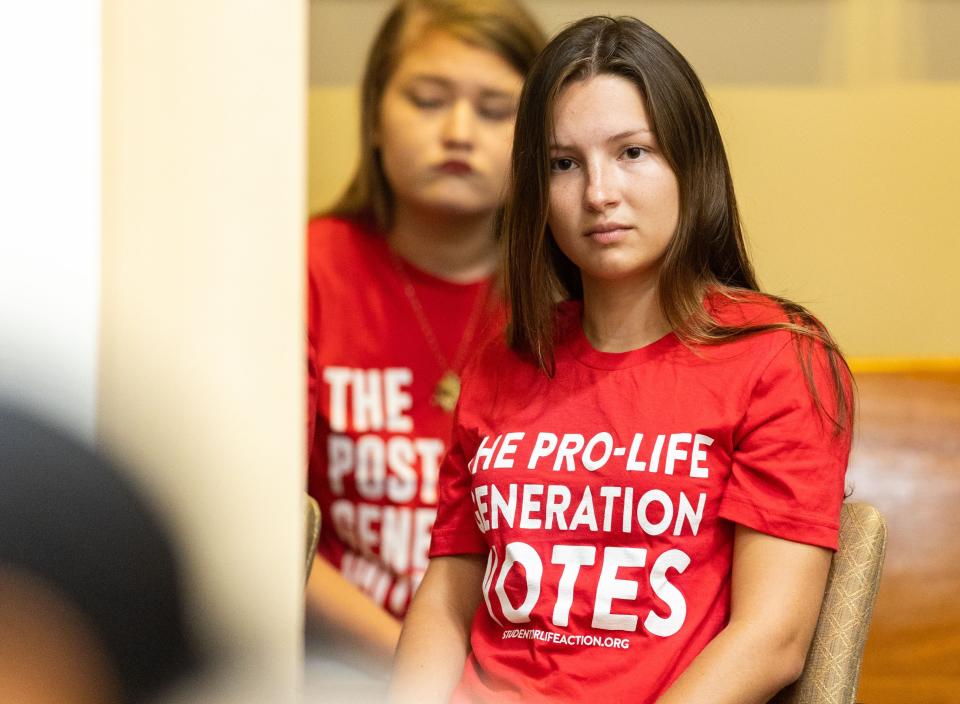
But current justices allowed that 15-week standard to remain in place for the past year, as the case made its way to the Supreme Court for Friday’s arguments, which spanned just over an hour.
If the court sides with the governor and the state, the 15-week law will be upheld – for now.
But DeSantis, who is struggling in his bid for the Republican presidential nomination, earlier this year signed into law a so-called fetal heartbeat law, which bans most abortions after six weeks of pregnancy.
That six-week standard would take effect 30 days after justices reverse the 1989 ruling the privacy shields abortion access.
But if the court strikes down the 15-week ban, abortions would once again be legal up until 24 weeks of pregnancy, seen as the age a fetus is viable outside a mother's womb. Abortion rights advocates say they are pessimistic about the prospect of Florida's court rejecting DeSantis and the Republican-controlled Legislature's approach.
“We think that the state has a compelling interest, in all stages of pregnancy, in preserving life,” Whitaker told the court. “Whatever you think about the status of unborn life, at any particular stage of pregnancy, it is a life in some sense and is unquestionably extinguished by the abortion decision.”
Attorney General Ashley Moody, a Republican, took the unusual step of appearing at the Supreme Court, sitting at the table with fellow lawyers from her office defending the state law.
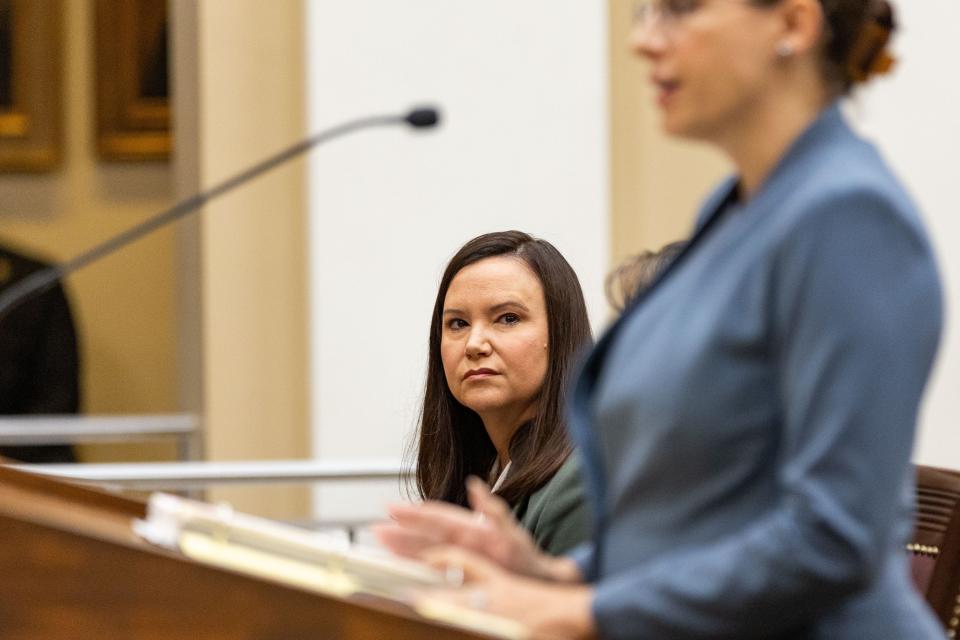
Three justices on the court appointed by DeSantis are women. The court, however, has clearly turned conservative under the governor, with Chief Justice Carlos Muniz at one point during arguments calling an “abomination,” the 1973 U.S. Supreme Court ruling, Roe v. Wade, which legalized abortion nationwide.
Federal justices last year overturned that ruling, sending it back to states to regulate abortion, clearing the way for Florida to enact the six-week law.
Justice John Couriel also acknowledged that a measure which should be considered in the eventual ruling is that 55% of Florida voters in 2012 rejected a ballot measure that would've blocked the state constitution from protecting abortion rights, basically showing support among Floridians for the 1989 ruling.
The state, however, wants justices to focus primarily on the lack of abortion discussion during the 1980 ballot campaign.
Justices peppered attorneys for both sides with questions not only about the meaning of the 1980 ruling but the legal standing of Planned Parenthood in challenging the 15-week law, along with the Legislature’s role in balancing the rights of women and the fetuses they are carrying.
“This court really hasn’t considered before what the 1980 amendment meant, and I think they will make that decision clearly educated on all the issues,” said Sen. Erin Grall, R-Vero Beach, a sponsor of the six-week law who attended Friday’s hearing.
She said it’s right for the court to review its past ruling.
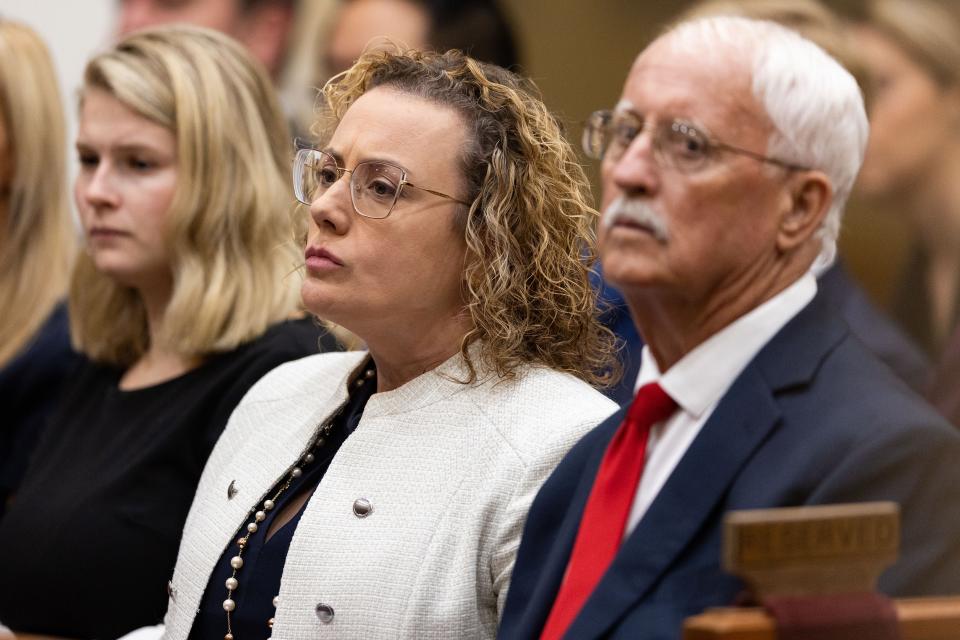
“It is a shift change in the way the amendment was originally interpreted. It does not mean that’s the way it should have been interpreted,” she added.
Sen. Lauren Book, D-Plantation, also attended Friday’s hearing and said the hopes of abortion rights advocates rest with a proposed constitutional amendment aimed at the November 2024 ballot.
“We have a shining light at the end of the tunnel,” she said.
The ballot proposal would guarantee abortion access up until fetal viability put at 24 weeks gestational age.
The proposal aimed at voters has collected enough signatures – officially close to 300,000 – to trigger a review of its ballot language by the Florida Supreme Court. Book said thousands more have been collected and just await verification by elections officials.
Almost 900,000 valid petition signatures are needed to get on the ballot.
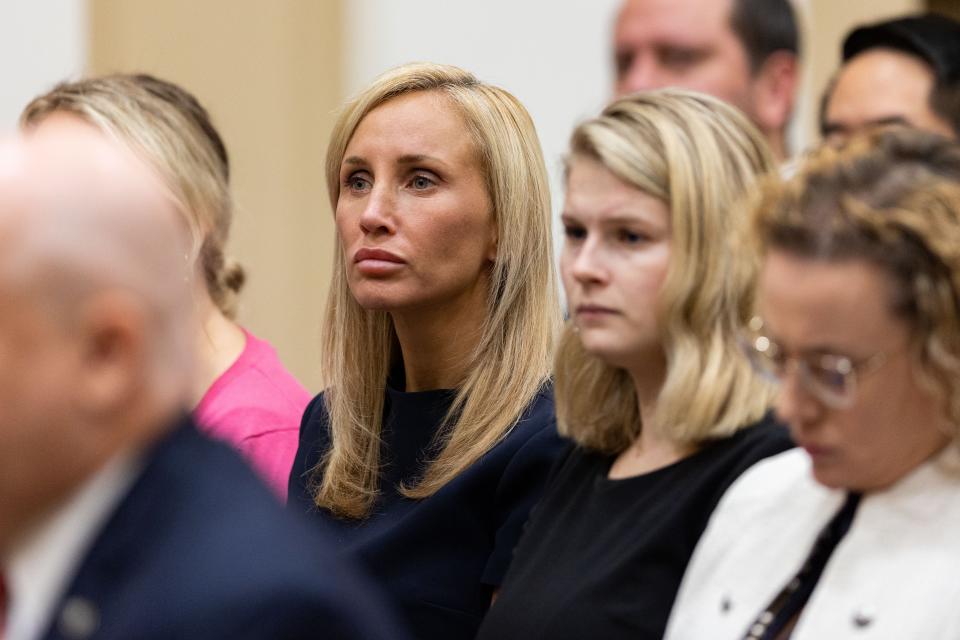
“To have collected that many petitions in such a short amount of time I believe tells people where the state of Florida is on this issue,” Book said.
The 1980 privacy provision is concise, but mentions few specifics.
It says: “Every natural person has the right to be let alone and free from governmental intrusion in the person’s private life except as otherwise provided herein. This section shall not be construed to limit the public’s right of access to public records and meetings as provided by law.”
When it went before Florida voters, the U.S. Supreme Court had approved abortion rights only seven years earlier, relying heavily on privacy-related protections in the federal constitution. But Floridians wanted to go further, White argued for Planned Parenthood.
Newspaper accounts and other records from that era mostly fail to mention abortion as being protected by the Florida amendment. But White said that doesn’t mean it was excluded from voters’ thinking.
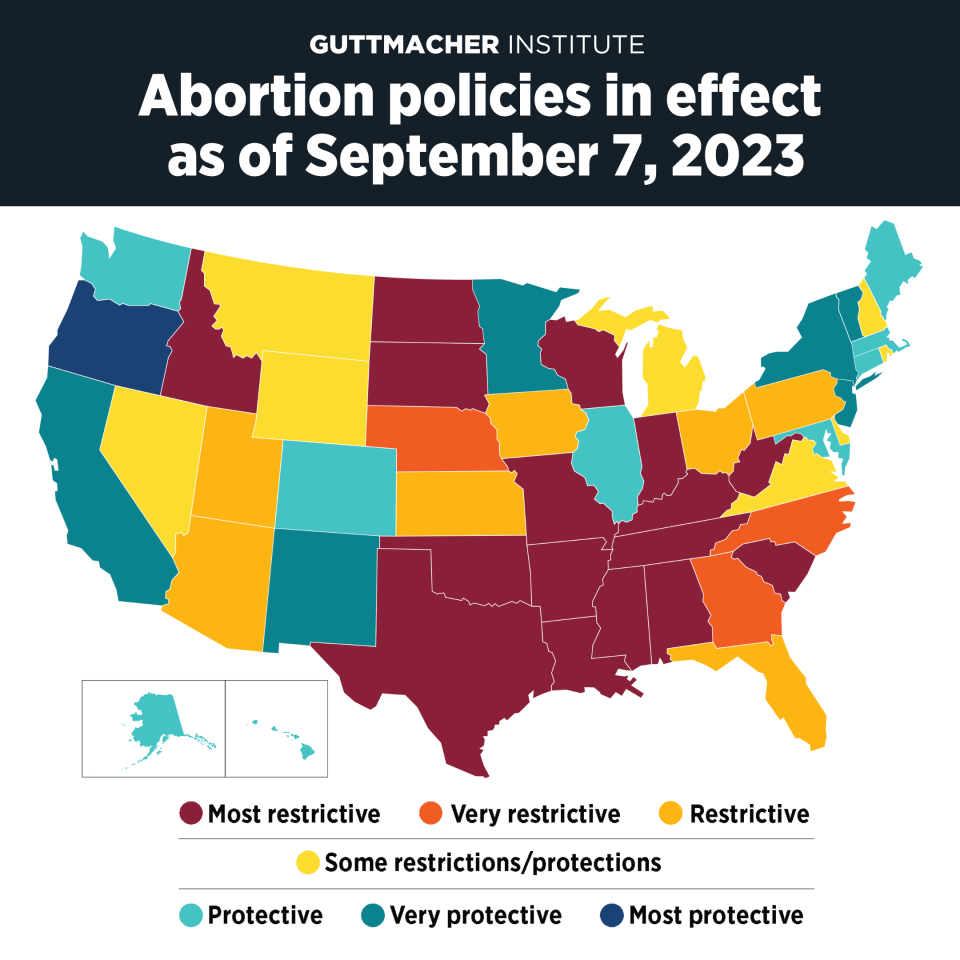
“It’s impossible to understand what was really going through people’s heads at that time,” White told justices.
“Freedom from government interference meant a number of different things,” she added. “That includes informational privacy protections that the state focused on, but it also included freedom from government interference with deeply personal and private decisions that affect one’s health, one’s family, one’s future, and abortion falls squarely within that protection.”
Whitaker, though, said it’s clear that abortion wasn’t considered protected, given that there were few references to it in the lead-up to the 1980 vote.
“It is unimaginable... that it would’ve included abortion, given the mere absence of references in the public debate over the question,” Whitaker said.
Muniz, though, summarized at least one of the questions before justices.
“How should we go about the process of trying to figure out how a Floridian in 1980 would’ve understood the concept of government intrusion into a person’s private life?” Muniz asked Whitaker.
The solicitor general said the historical record can be used. But there’s even a dictionary meaning available, he said.
“You can’t really use a dictionary to find out what a person thinks is a governmental intrusion into my private life,” Muniz dismissed.
John Kennedy is a reporter in the USA TODAY Network’s Florida Capital Bureau. He can be reached at jkennedy2@gannett.com, or on Twitter at @JKennedyReport
This article originally appeared on Tallahassee Democrat: Florida abortion law goes before state Supreme Court

